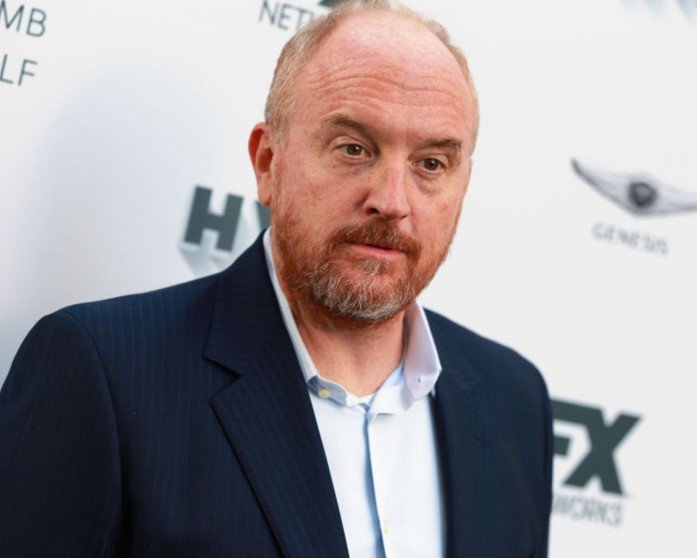Comedian Louis CK has spoken out about his choice to perform at the Riyadh Comedy Festival in Saudi Arabia, calling it a good opportunity despite ongoing human rights concerns. In a recent interview, he shared mixed feelings but highlighted positive audience reactions, amid backlash from other comics who see the event as a way to polish the kingdom’s image.
Festival Background and Lineup
The Riyadh Comedy Festival kicked off in late September 2025 and runs through October 9 in Saudi Arabia’s capital. Organized by the kingdom’s General Entertainment Authority, it features a star-studded roster of international comedians aiming to boost cultural ties.
This event marks a push under Saudi Arabia’s Vision 2030 plan, which seeks to diversify the economy and open up entertainment options. Critics argue it distracts from serious issues like restrictions on free speech and women’s rights.
Hundreds of thousands have attended shows, with tickets selling out fast for big names. Social media buzz shows fans excited about the mix of global talent in a region not known for such festivals.
Louis CK’s Defense on Stage Choice
Louis CK appeared on Real Time with Bill Maher to explain his decision. He admitted to turning down past offers from Arab countries due to strict content rules, but this time felt different.
He pointed out only two off-limits topics: religion and government. Since his act avoids those, he saw no issue. CK described the festival as a chance to connect and start conversations through comedy.

He mentioned a fellow performer’s warm reception, noting unexpected positive vibes. Despite mixed emotions, he views it as a step forward for cultural exchange.
CK stressed that comedians have performed in the region before, including at recent film festivals. He believes engaging directly can lead to change, rather than staying away.
Backlash from Fellow Comedians
Several comics have voiced strong opposition to the festival. They claim it helps whitewash Saudi Arabia’s record on human rights, including censorship and treatment of minorities.
One prominent critic slammed the event online, questioning how performers can ignore the kingdom’s history. Others highlighted the irony of free-speech advocates taking money from a government that limits expression.
Social media posts show divided opinions, with some fans disappointed in their idols. Protests include calls to boycott similar events funded by controversial regimes.
A few performers have expressed regret after participating. This has sparked debates about ethics in entertainment and where to draw the line.
Here are key criticisms raised:
- Accusations of sportswashing through cultural events.
- Concerns over free speech crackdowns in Saudi Arabia.
- Questions about high payouts influencing decisions.
- Impact on global perceptions of human rights.
Responses from Other Performers
Not all comedians share the criticism. Some in the lineup defend their involvement, saying it promotes dialogue and exposes audiences to new ideas.
For instance, one comic noted the kingdom’s recent reforms, like allowing women to drive and easing some social rules. They argue that performing there supports positive shifts.
Others remain silent or focus on the artistic side. A table below outlines notable participants and their stances:
| Comedian | Stance on Festival | Key Quote or Action |
|---|---|---|
| Dave Chappelle | Supportive, performed without issue | Highlighted crowd enthusiasm |
| Bill Burr | Neutral, focused on comedy | Avoided political comments |
| Kevin Hart | Positive, sees it as opportunity | Shared excitement on social media |
| Pete Davidson | Mixed, acknowledged controversy | Joked about it in routine |
| Whitney Cummings | Regretful after performance | Issued public apology |
This variety shows the complex views within the comedy world.
Broader Implications for Entertainment
The festival ties into Saudi Arabia’s efforts to host major events, from sports to music, as part of economic reforms. In 2025 alone, the kingdom has welcomed stars in various fields, drawing both praise and scrutiny.
Human rights groups warn that such spectacles mask ongoing problems, like journalist detentions and activist arrests. Recent reports from 2025 note a rise in online censorship cases.
On the flip side, supporters point to growing tourism and cultural openness. Events like this could lead to more progressive changes over time.
Comedy, with its power to challenge norms, might play a role in that evolution. Yet, the debate raises questions about artists’ responsibilities in global politics.
What do you think about comedians performing in controversial spots? Share your thoughts in the comments and spread this article to keep the conversation going.
